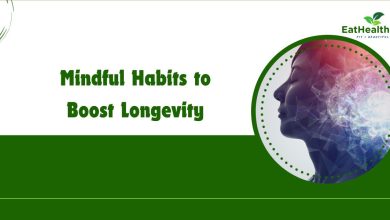Religion and Lifestyle: Navigating Cultural Influences
Embracing Diversity: Exploring the Interplay Between Religion and Lifestyle

Religion and Lifestyle: Navigating Cultural Influences
Religion plays a significant role in shaping the lifestyles, beliefs, and practices of individuals and communities worldwide. From dietary customs to social norms, religious teachings and traditions often intersect with various aspects of daily life, influencing behavior, values, and identities. In this comprehensive exploration, we delve into the intricate relationship between religion and lifestyle, examining how cultural influences manifest through religious beliefs and practices.
Understanding Religion and Lifestyle
Religion encompasses a complex tapestry of beliefs, rituals, and values that inform individuals’ perceptions of the world and guide their behavior. Lifestyle, on the other hand, refers to the patterns of living that characterize individuals and societies, including diet, dress, social interactions, and leisure activities. The intersection of religion and lifestyle reflects the ways in which religious teachings and practices influence various aspects of daily life, shaping attitudes, behaviors, and identities.
Exploring Cultural Influences
- Dietary Practices: Many religious traditions prescribe specific dietary guidelines and restrictions based on spiritual beliefs and cultural customs. For example, followers of Hinduism often adhere to vegetarian or lacto-vegetarian diets out of respect for all living beings and the concept of ahimsa (non-violence). Similarly, Jewish dietary laws, known as Kashrut, dictate what foods are considered kosher (fit or proper) for consumption, prohibiting the consumption of certain animals and the mixing of meat and dairy products.
- Dress Codes and Modesty: Religious teachings often influence dress codes and modesty standards within communities. For instance, Muslim women may choose to wear the hijab or headscarf as a symbol of modesty and piety, in accordance with Islamic teachings on modesty and gender relations. Similarly, Orthodox Jewish women may adhere to guidelines regarding modest attire, such as wearing skirts and covering their hair after marriage.
- Social Interactions and Relationships: Religious beliefs and values shape social interactions and relationships within communities. For example, in many Christian traditions, marriage is considered a sacred union between a man and a woman, with marital fidelity and commitment emphasized as core values. Similarly, in Hinduism, arranged marriages based on religious and cultural compatibility are common, reflecting the importance of family and community in marital relationships.
- Leisure Activities and Festivals: Religious festivals and celebrations play a central role in shaping leisure activities and community life. For example, the Hindu festival of Diwali, known as the Festival of Lights, is celebrated with fireworks, feasting, and the lighting of lamps to symbolize the victory of light over darkness and good over evil. Similarly, Christmas is celebrated by Christians worldwide with religious services, gift-giving, and festive gatherings to commemorate the birth of Jesus Christ.
Navigating Cultural Influences
While religion exerts a profound influence on lifestyle choices and practices, individuals navigate cultural influences in diverse ways: Just as we know Cultural Biases: Unraveling the Impact on Choices
- Personal Beliefs and Interpretations: Individuals may interpret and practice religion and lifestyle in ways that resonate with their personal beliefs, values, and experiences. This may involve selective adherence to religious teachings, adaptation of traditions to modern contexts, or exploration of alternative spiritual paths.
- Cultural Diversity and Pluralism: In multicultural and pluralistic societies, individuals are exposed to a variety of religious beliefs, practices, and cultural traditions. Embracing cultural diversity fosters interfaith dialogue, mutual understanding, and respect for different ways of life.
- Critical Reflection and Inquiry: Critical reflection and inquiry into religious teachings and cultural practices allow individuals to engage with their beliefs and values in a thoughtful and introspective manner. Questioning assumptions, challenging stereotypes, and seeking knowledge from diverse sources promote intellectual growth and spiritual development.
Conclusion
The intersection of religion and lifestyle reflects the rich tapestry of human diversity and cultural expression. By exploring the ways in which religious beliefs and practices influence daily life, we gain insight into the complexities of identity, community, and belonging. Navigating cultural influences requires openness, curiosity, and a willingness to engage with diverse perspectives and experiences. As we strive to understand the intricate relationship between religion and lifestyle, may we cultivate empathy, respect, and appreciation for the diverse ways in which individuals express their spirituality and cultural heritage.




